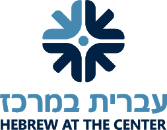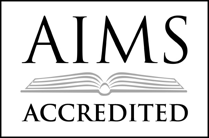Driving More Student Engagement, Agency, Collaboration, and Creativity
September 3, 2015 by
Utilizing Research-based 21st Century Approaches to Education at JPDS-NC
The beginning of a new school year is always an exciting time… but this year, we are more energized by our future than ever. We welcomed 334 students through our doors a few days ago; at the North Campus, we warmly welcomed our first cohort of students who began their JPDS-NC experience at the South Campus; and we are excited by ongoing plans to open our middle school.
But there is another reason for the palpable momentum and dynamism that is filling the hallways, classrooms, and meeting spaces at JPDS-NC this year. Over the course of the year, JPDS-NC faculty and administrators have been engaged in an intensive exploration of research-based, 21st century approaches to education that are at the forefront of driving more student engagement, agency, collaboration, and creativity. Thanks to the funds received from the Legacy Heritage Fund Headway Grant and other donations, we were able to significantly expand our professional development offerings to staff members. By attending many conferences, workshops, and visits to schools locally, nationally, and internationally, members of our faculty and administration were able to engage with leading practitioners in the field of education. Our investigations spanned diverse but connected initiatives and philosophies: Reggio Emilia, Project Zero (a program from the Harvard Graduate School of Education), Design Thinking, Expeditionary Learning, and Differentiated Instruction, among others. We learned about thinking routines, the design process, making learning visible, and collaborative problem-solving for behavioral situations and research projects. This summer, we hosted two extraordinary days of learning in which the entire faculty learned with and from each other, as we shared our experiences and insights on the topics above, and spent significant amounts of time exploring the connections among all of them and how they interconnect and augment our current use of Project Based Learning, Constructivism, Game-Based Learning, and STEAM.
The enthusiasm of the faculty as we embark on the new school year and on a second year of learning through the LHF grant is more than inspiring… it is breathtaking! I wanted to share one example of the new Thinking Routines that were implemented to cultivate thinking and deepen learning.
A Book, Post-it Notes, and Poetry – A Thinking Routine in Action
Fifth grade teachers Marissa Bullock and Terry Volk surprised their students on the first day of school with an innovative approach to reflect on their summer reading assignment, Maniac Magee. Students in each class were given Post-it notes in one of four colors. They were asked to think of five words that they associated with the story and write the words on the colored Post-it notes. After the students had a chance to individually reflect and document their own reaction to the book, all the students with the same color Post-it notes met to form small groups. The group members shared their words and began their collaboration on the creation of a “Pile Poem.” Students were challenged to use only the words on the Post-it notes to create a poem about the book – with the added challenge of having to use all the words that their teammates selected. The process required a great deal of active listening, reflection, creativity, and collaboration. The students had to consider different viewpoints, make connections, and dive deeper into the material as together they decided on the most effective way to pile the Post-its in order to create their poem. The purpose of utilizing this thinking routine was twofold. First, for the children to understand the tone of the book, to be able to pick out and reflect on how the book made them feel, and consider what resonated with them. Second, to problem solve and collaborate with their classmates, as together they create a meaningful expression of the book through a poem.
We will continue to share more information about the pedagogical and curricular enhancements at JPDS-NC this year here, in our newsletter HaShavua, in other communications, and at events throughout out the year. For now, let me just say: welcome to the 2015-16, 5776 school year. We are thrilled to begin a new year of learning, innovation, and growth for all of us!






